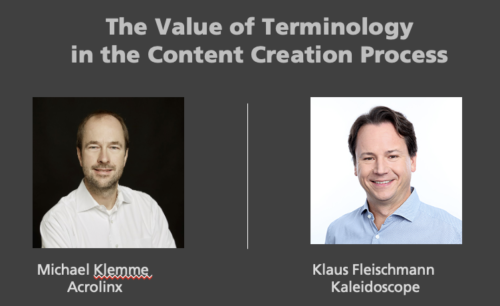
Communication can be tricky as meaning and understanding can get lost easily. The nuances of our languages with their different meanings and overlapping concepts are only one source for failed communication. On a business level, things get even more complicated when different business units or content providers are not consistent in their usage of words. In the days of “King Content” this can be detrimental to your business success.
- But how do you find out which terms are used in various parts of your organization?
- How can you gather and harmonize them?
- How can you get everybody's input on the suggestions you make as a terminologist?
- And how can you make sure you have a functioning feedback loop to maintain consistently high termbase quality?
Find out more in our webinar where we present procedural and technological solutions with our Content Quality Platform Kalcium.
Presented by Klaus Fleischmann, Kaleidoscope
Klaus Fleischmann studied translation and IT in Vienna, holds an MA in Conference Interpreting from Monterey, California, and a MAS in Technical Communication from Krems, Austria. In 1996, he founded Austria-based Kaleidoscope, a company implementing content, translation, and terminology management processes for internationally active companies. Kaleidoscope develops online collaboration software for enterprise-level terminology workflow, translator query management, in-country review etc., making the translation quality process comprehensible and strategically manageable. In 2007, he became CEO of Austria's leading LSP, Eurocom Translation Services. Always active in the industry, Klaus was voted into the Gala Board of Directors in 2015 and 2017.


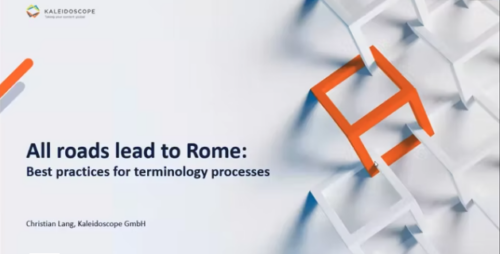

 Christian Lang, Technical Consultant, has a wide range of experience and interests in the language field, proven by his degree in Japanese studies and translation. He first became involved with terminology management as a freelance translator for the European Patent Office. Since then, it has become one of his hobbies, as has research in the field of NLP on topics such as machine translation, automatic term extraction, and concept maps.
Christian Lang, Technical Consultant, has a wide range of experience and interests in the language field, proven by his degree in Japanese studies and translation. He first became involved with terminology management as a freelance translator for the European Patent Office. Since then, it has become one of his hobbies, as has research in the field of NLP on topics such as machine translation, automatic term extraction, and concept maps.
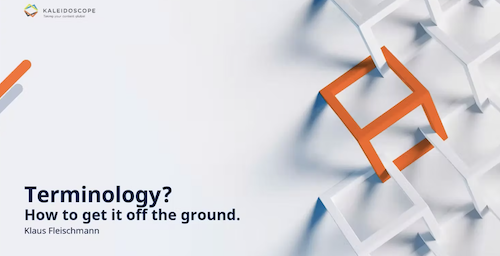
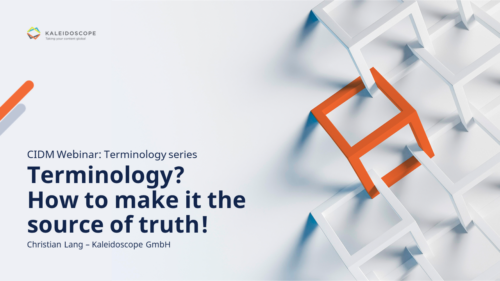



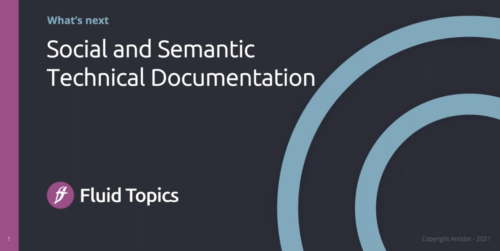
 Fabrice Lacroix is a serial entrepreneur and a technology pioneer. He has been working for 25 years on the development of innovative solutions around search technology, content enrichment and AI. He is the founder of Fluid Topics, the leading Content Delivery Platform that reinvents how users search, read and interact with technical documentation.
Fabrice Lacroix is a serial entrepreneur and a technology pioneer. He has been working for 25 years on the development of innovative solutions around search technology, content enrichment and AI. He is the founder of Fluid Topics, the leading Content Delivery Platform that reinvents how users search, read and interact with technical documentation. 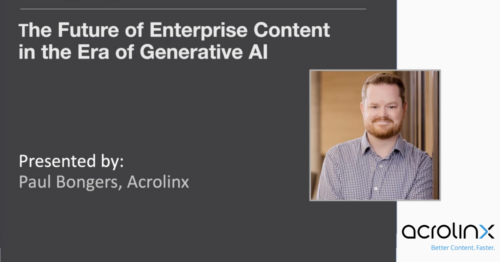

 Paul Bongers is a strategist, technologist, and a SaaS generalist. In his role as VP Strategy, Paul shapes the Acrolinx product strategy. His team works closely with all departments across the business to foster innovation and expand value for Acrolinx customers.
LinkedIn:
Paul Bongers is a strategist, technologist, and a SaaS generalist. In his role as VP Strategy, Paul shapes the Acrolinx product strategy. His team works closely with all departments across the business to foster innovation and expand value for Acrolinx customers.
LinkedIn: 
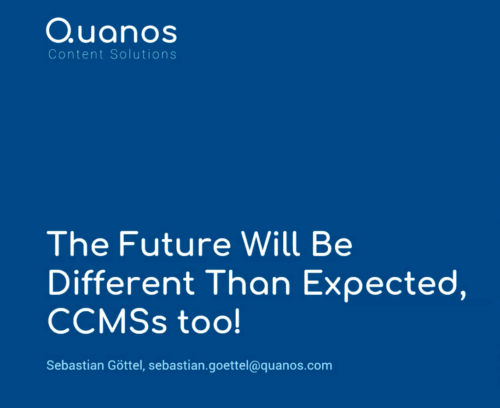

 Sebastian Göttel is Head of Marketing and Product Management at Quanos Content Solutions GmbH. The computer scientist has been involved with XML editing systems and content delivery since 1998. In the Tekom environment, he worked on version 1.0 of the iiRDS standard.
Sebastian Göttel is Head of Marketing and Product Management at Quanos Content Solutions GmbH. The computer scientist has been involved with XML editing systems and content delivery since 1998. In the Tekom environment, he worked on version 1.0 of the iiRDS standard. 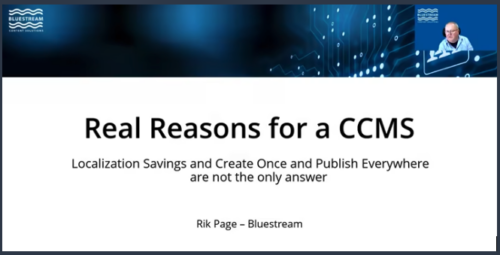
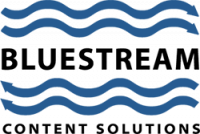
 Rik has worked with component content and document management solutions for over 20 years. He has worked with custom DTDs and Schemas, S1000D, iSpec2200, and DITA, together with various document and content management systems, including Documentum, SharePoint, XDocs, Ixiasoft, easyDITA, Astoria, and Vasont.
His practical experience ranges from high-volume data capture and content creation to dynamic multichannel delivery in various industries, including banking and finance, manufacturing, central government, and education. In addition, Rik has participated in multiple consultancy projects and helped formulate innovative solutions throughout Europe and North America.
Rik is also an advocate of Documentation 4.0, a new concept reflecting the demands on content/documentation that results from moving to Industry 4.0 and ‘smart’ manufacturing.
Rik has worked with component content and document management solutions for over 20 years. He has worked with custom DTDs and Schemas, S1000D, iSpec2200, and DITA, together with various document and content management systems, including Documentum, SharePoint, XDocs, Ixiasoft, easyDITA, Astoria, and Vasont.
His practical experience ranges from high-volume data capture and content creation to dynamic multichannel delivery in various industries, including banking and finance, manufacturing, central government, and education. In addition, Rik has participated in multiple consultancy projects and helped formulate innovative solutions throughout Europe and North America.
Rik is also an advocate of Documentation 4.0, a new concept reflecting the demands on content/documentation that results from moving to Industry 4.0 and ‘smart’ manufacturing.
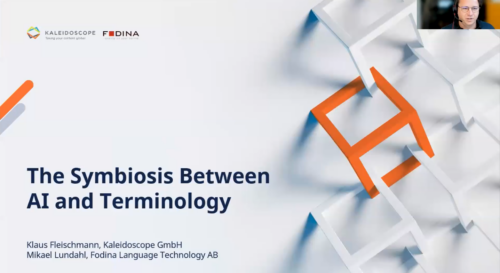
 Klaus Fleischmann studied translation and IT in Vienna, holds an MA in Conference Interpreting from Monterey, California, and a MAS in Technical Communication from Krems, Austria. In 1996, he founded Austria-based Kaleidoscope, a company implementing content, translation, and terminology management processes for internationally active companies. Kaleidoscope develops online collaboration software for enterprise-level terminology workflow, translator query management, in-country review etc., making the translation quality process comprehensible and strategically manageable. In 2007, he became CEO of Austria´s leading LSP, Eurocom Translation Services. Always active in the industry, Klaus got voted into the Gala Board of Directors in 2015 and 2017
Klaus Fleischmann studied translation and IT in Vienna, holds an MA in Conference Interpreting from Monterey, California, and a MAS in Technical Communication from Krems, Austria. In 1996, he founded Austria-based Kaleidoscope, a company implementing content, translation, and terminology management processes for internationally active companies. Kaleidoscope develops online collaboration software for enterprise-level terminology workflow, translator query management, in-country review etc., making the translation quality process comprehensible and strategically manageable. In 2007, he became CEO of Austria´s leading LSP, Eurocom Translation Services. Always active in the industry, Klaus got voted into the Gala Board of Directors in 2015 and 2017
 Mikael Lundahl works with language processes and language technology. From content creation to translation and publishing. From marketing material to technical documentation and software strings. His focus is on how terminology, with processes and tools, can support both the writing and translation processes.
Fodina Language Technology partners with and sells products from Kaleidoscope and Acrolinx. But Fodina also develops tools that help customers to build their company terminologies based on existing documentation, standards, or competitor's web information. AI-supported term extraction from many file formats and automated clustering of identified terms into concepts. Through integrations to both Acrolinx and Kaleidoscope products, we have full tool support for the terminology process that we recommend customers to use. Our tools support working with terms in English, German, and Swedish.
Mikael Lundahl works with language processes and language technology. From content creation to translation and publishing. From marketing material to technical documentation and software strings. His focus is on how terminology, with processes and tools, can support both the writing and translation processes.
Fodina Language Technology partners with and sells products from Kaleidoscope and Acrolinx. But Fodina also develops tools that help customers to build their company terminologies based on existing documentation, standards, or competitor's web information. AI-supported term extraction from many file formats and automated clustering of identified terms into concepts. Through integrations to both Acrolinx and Kaleidoscope products, we have full tool support for the terminology process that we recommend customers to use. Our tools support working with terms in English, German, and Swedish.
